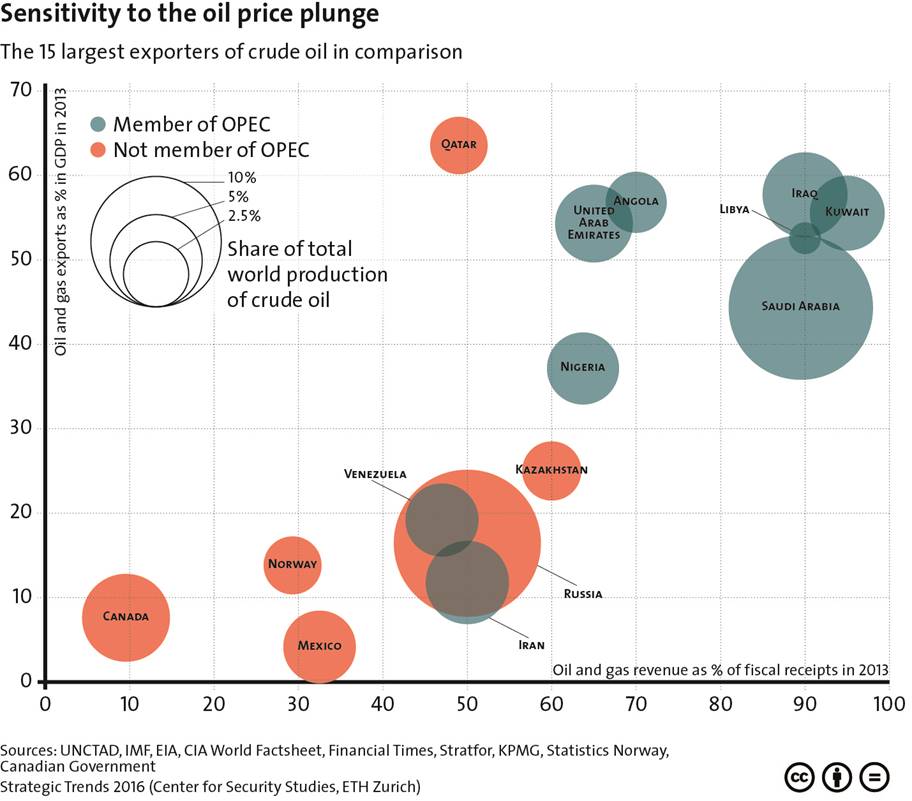Energy in Global Security Policies
Low oil prices, changes in natural gas market structures and a whole set of new suppliers: Global energy markets have seen massive changes over the last five years. This also changes the geopolitical constellation of supplier and consumer countries – new security challenges are emerging.
“Strategic Trends” is an annual publication that derives from continuing work at the Think Tank of Center for Security Studies (CSS) and sheds light on some of the future themes in international relations. This year’s publication also focusses on changes in the global energy security situation. In “An Energy World Order in Flux”, Severin Fischer looks at energy-induced challenges for actors in the field of security policy.
While the overall trend towards oversupplied markets for fossil fuels seems to be a positive signal for end-consumers, it creates new constellations of power and influence from a security point of view. The political bargaining potential of oil and gas producing states, especially OPEC, is set to dilute. The missing income for resource rich countries in South America, Africa and in the Gulf region also leads to political instability in war-torn regions. The increase in LNG trade influences traditional energy relations such as the natural gas supply between Russia and Europe. This relationship is therefore undergoing fundamental changes, shifting risks to the supply side and strengthening the role of transit states.
The ESC member involved in this project is Prof. Andreas Wenger at the Center for Security Studies (CSS) at ETH.
As part of the CSS’ vision of contributing to a more peaceful and secure world, the CSS’ think tank activities aim to improve the quality of Swiss and international security policy and peace promotion activities by providing policy advice based on academic research.
